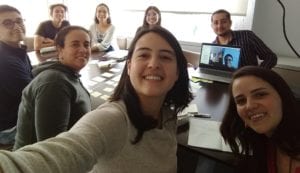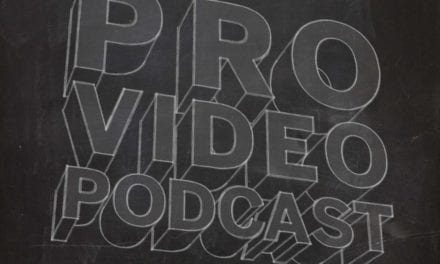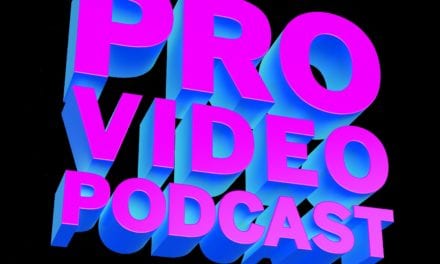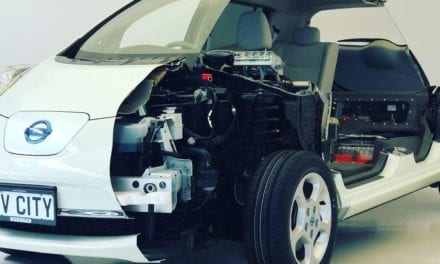
The Open Anthropology Lab: a mediating space between academic and applied anthropologies: activating experimentation and enabling knowledge translation
EN
El Laboratorio de Antropología Abierta (The Open Anthropology Lab) or LAAB is a non-profit organization for the popularization of anthropological knowledge beyond academia. Founded in 2018 by Giselle Figueroa De la Ossa, who after receiving her MSc in Anthropology from The London School of Economics returned back home to Colombia and decided to create a platform opening anthropology for public debate. The LAAB is a space in which anthropological knowledge is translated into an audiovisual language in order to bring anthropology closer to more diverse audiences. It is open to students, graduates and professionals who wish to apply anthropological methods in creative ways. Camila Castillo and Daniela Suarez Valenzuela have joined the LAAB as students and stayed to become part of the permanent team.
Today we speak with Giselle, Camila and Daniela about the experimental ways to apply anthropology in a new context to us – Colombia, and wonder what inspired the emergence of this open anthropology platform. How to create a mediating space between two anthropologies, the enclosed academic one the applied limited to industry research only? The LAAB allows for experimentation and exploration of methods that are often new to the anthropologists joining the collective. How to translate an academic text into a textbook and not distort the knowledge? How conveying ethnography to children can educate them about the social world though empathy in a non-normative way? We reflect on the challenges of organizing this experiment, the moments that make it worth going forward and the profound conviction about the anthropological power to transform the world.
The episode being in Spanish perfectly reflects the spirit of LAAB – it is a way to experiment with formats in order to hear the voice of the researcher in a new light, and to expand access of knowledge exchange.
ES
El Laboratorio de Antropología Abierta: un espacio mediando entre la antropología acadeémica y aplicada: activando la experimentación y posibilitando la traducción del conocimiento
El Laboratorio de Antropología Abierta o el LAAB es una organización sin fines de lucro dirigida a la popularización del conocimiento antropológico más allá de la academia. Fundado en el 2018 por Giselle Figueroa De la Ossa, quien al cumplir su maestría en antropología en la London School of Economics regresó a Colombia y decidió crear una plataforma invitando a un debate público desde la antropología. El LAAB es un espacio donde el conocimiento antropológico está traducido a un lenguaje audiovisual con el objetivo de acercar la antropología a las audiencias más diversas. El LAAB está abierto a los estudiantes, graduados, y personas con perfiles más profesionales dispuestos a aplicar métodos antropológicos en unas formas creativas. Camila Castillo y Daniela Suarez Valenzuela se juntaron al Laboratorio como estudiantes y se quedaron a formar parte del equipo permanente.
Hoy hablamos con Giselle, Camila y Daniela sobre los métodos experimentales de aplicar antropología en un contexto muy nuevo para nosotros que es Colombia y nos preguntamos qué es lo que inspiró la aparición de esa plataforma de antropología abierta. Como crear un espacio de mediación entre dos antropologías, la académica y la que se enfoca solo en la industria. El LAAB permite la experimentación y la exploración de métodos muchas veces desconocidos para los nuevos miembros del equipo. Les preguntamos ¿cómo consiguen traducir textos académicos a una cartilla para niños manteniendo el conocimiento antropológico? Y ¿cómo expresar la etnografía para poder educar a los niños sobre los problemas sociales generando empatía en una manera no normativa. Reflexionamos sobre los retos que encuentran organizando su experimento, los momentos de gratificación y la profunda convicción del poder antropológico para transformar el mundo.
El episodio siendo en español refleja el espíritu del LAAB perfectamente – es una manera de experimentar con formatos para poder escuchar la voz del investigador con un nuevo enfoque, y expandir el acceso del intercambio del conocimiento.
Listen & Subscribe to the Podcast here:
>> Transcript of the episode with Antropología Abierta
M – Maria
G – Giselle
D – Daniela
C – Camila
- Hi everyone, today we have Giselle, Camila and Daniela talking to us about applied anthropology in a very new context to our listeners – Colombia.
- Hi and thank you for having us and inviting us here.
- To start with, a bit of an introduction. What is the Laboratoría Abierta (Open Laboratory)? How did it come together and who inspired you?
- Me, Giselle, am an anthropologist from here where I have studied in the University of Los Andes in Bogota. I am the founder of the Laboratory which I decided to found in 2018 after having done my master’s in the London School of Economics. The idea emerged out of the necessity that I found here back in Colombia, a necessity to have a mediating space between the anthropology carried out in Colombian academia and a more applied one that was being practiced in industry, public sector.
- How did you find the rest of the team?
- The first thing I did was contacting the Colombian Anthropology Association which was also a relatively new organization established a year ago or so. I reached out to them and told them about my project and idea and they were interested in supporting me. We decided to unite forces and announce an open call for anthropologists in general, not necessarily only students, but also graduates, people already working and willing to apply anthropology. This is how Camila and Daniela came to the team together with others and at that moment we formed a team of eight people. And well, we started working a lot, on many projects, giving form to the idea that I had.
- My name is Daniela, I am about to graduate from the National University and learned about the Laboratory precisely through the open call which Giselle has just mentioned. And it was very exciting so I stayed.
- My name is Camila, I am in my last year of Anthropology and History degree at the University of Rosario. As Giselle mentioned, I signed up for the internship program at the Laboratory and started helping with the projects beginning of last year and had finished the internship after half a year. But I decided to continue because I got very enthusiastic about the projects we started working on and achieved a lot in spreading the new forms that are non-academic.
- So Giselle, you mentioned that after returning from London, your realized that there was not much movement in the anthropological field outside of academia?
- Yes, that’s how it is. I see anthropology in Colombia as divided in two completely different anthropologies. There is one confined to an infrastructure of a very closed knowledge production, where most people come with PhDs obtained abroad. And they get closed in the university and start publishing academic articles and their investigations are mostly in the format of a text. No? And the knowledge that they produce is spread through an academic article or a book, but it doesn’t go much beyond it. There are very few cases and few people who go further than that, than a text, in order to spread the knowledge. And on the other hand, there is the anthropology completely separate from academia, which is the applied anthropology, where most can be found working in marketing, advertisement, and research of this type regarding, well… social impact, but I find them not very analytical I would say. A ‘light’ applied anthropology. So, I feel like there is missing something that could connect the two and the Laboratory starts with this intention and is an experiment so to speak.
- To connect two worlds…and when you study at the university, are you taught what applied anthropology is or is it something you had to find your own way after graduating?
- We come from three different universities, and I believe each would her an individual story, but I think in general, there are not many courses…So one has to discover and reinvent oneself a bit because the formation is not found at universities.
- I believe that in the educational training there have been no courses centered around the forms that we are now working and through which we are disseminating the anthropological knowledge. And it comes from our personal curiosities as students to want to transfer our research to formats that could be interesting to all kinds of audiences. I think this curiosity emerges in a student when exploration of different means to do research begin and lead to thinking of how to spread the findings in a way that people get interested in what we had been doing in our field and get interested in anthropology.
- could we say that you are in a process of experimentation?
- The Laboratory we see it as a place of experimentation, investigation, popularization of the anthropological understanding. Basically. We are very interested in the audiovisual means and see it as a powerful tool to transmit the knowledge that is produced within anthropology. We try to do a variety of things, we have videos, podcast, textbooks for children. Because we try to cover a wide range of audiences, right? So from public officials to children.
- And you had to learn all those methods in your spare time?
- Let’s take editing for example, the most challenging in the process of adapting anthropology to other audiences was not to lose the concept that we want to communicate when changing the format. To change an academic research that is a bit more rigid into a simplified language using images and other types of instruments while not distorting the message.
- I would also like to add that thinking about the content directed to an audience such as children has been a kind of trial and error challenge with constant feedback. As we were not used to or trained to write in any other language that was not academic, we spent a lot of time practicing, trying to find other means that would be simpler. And to make the audience understand what we want to say has been a learning through which, we could say, we came to really good results but it has also been a product of constant work and feedback within the team.
- Are there people in your team with different backgrounds from yours?
- Yes, there came philosophers, film makers, visual artists, so yes, it is a very multidisciplinary team. We also have illustrators who are helping us with part of…well with mediating between art and anthropology. Because it is not only a process of translating certain anthropological messages to a visual format, but also trying to play with art and these formats. And we have the support of artists to help us with it.
- In that sense the Laboratory is a very open space where all the different disciplines help communicating the anthropological research, so it is not needed to know anthropology in order to provide another point of view. Because maybe with so much time spent on a subject, we (people with anthropological background) have become too familiarized with it.
- Tell us a bit about the projects that you are working on currently?
- One of the projects in which we have put a lot of work is developing textbooks addressed to children. We were looking at how to give them a wider perspective of certain topics that are conjunctural in thinking about the social world. It’s a group of three textbooks. First one is on human humility in which we look into themes related to migration, having in mind that in Colombia at this moment we are at a bridge crossing between the Venezuelan migrants who enter the country in a regular or irregular manner.
We have designed two more textbooks. One on environmental justice and another on inequality focusing more on economy. Developing these textbooks has been a challenge because writing to a child is not something simple, because we need to find a language that is not cantered on words but much more linked to images and activities through which children age 7-12 could reflect on things. In that sense it has been a very interesting learning process for us too and made us realize that anthropology is not only an academic niche but that it is possible to teach from the anthropology.
- I believe that working on the textbook on migration was exactly the moment when we felt as if in a laboratory, experimenting with texts and flooding the table with small notes and putting together a puzzle. Because it wouldn’t fit and wouldn’t work so we had to go back and look again and redo it differently. This way of using didactic power of anthropology so that the same tools we use in a fieldwork, children could use in order to understand the problems, it has been a beautiful experience.
- What is the most effortful in explaining to the audience the value that anthropologist can bring?
- I think the most difficult task is to simplify the content. As we read so much and receive so much information, we would like to communicate the same quantity of information.
- Also not only during the development but in the moment of selecting the topics we want to work on. I think we feel a certain responsibility selecting the topics for the textbooks as well as videos. We intend to choose things that people are not only somewhat familiar with but which would also have an impact in the way they think and understand what is going on in everyday live around them.
- On top of what Camila and Daniela have said regarding the challenges, it is fundamental trying to find the relationship between what we want to say and what is happening to draw the attention of our audience rapidly. This way they can relate and get involved deeper with what we are trying to communicate. For that, as Camila mentioned, we try to engage in topics that are relevant and critical of the current situation in Colombia and the world. I think this is our hook so to say.
- A little bit more about the topics. Which are the ones you wish to elaborate more in your current work or near future?
- We are trying to organize ourselves and our experimentation, if not it is difficult to get to concrete results. We have chosen three topics. Human humility, here we not only touch upon migration and xenophobia, other topics find way in, for example human and political geography. We are also working a bit on the topic of populism and various others. Then the environmental justice, here we have a lot planned, not only the textbooks, but also our videos, podcasts and comics, something we have not mentioned yet.
- oh so cool
- yes… And then the topic of inequalities, in general but we mostly aim at economic inequalities, inside of Colombia and also between countries.
- Could you think of a moment, let’s say a personal achievement which made you realize that what you are doing is worth continuing.
- Last year we had the chance to participate in the Bogota book fair and test our methodologies with children in small workshops. It had a very very satisfactory result. Seeing how they also drew conclusions at the end …One thing that is super important for us and is something of being anthropologists is not to tell the conclusions, not to be normative so to say, not to say to a person this is good or bad or this way you should or shouldn’t act. But to show the principles differently. Such as how to put shoes for someone else, generating empathy. And in the workshops, we also did not provide any conclusions and allowed them to do it and the results were incredible, the children wrote their conclusions on big posters and those conclusions were wonderful.
- How beautiful
- Last year we also participated in the anthropology congress where we met a group of researchers who are carrying out a very similar project to ours, they also made a textbook for children focusing more on the co-living between the Colombian and the Venezuelan students. Thanks to this connection we were able to participate in the development of the textbook supporting then with the methodology that we have been elaborating in the Laboratory including some stories and exercises. This textbook will be soon published and it has been a relevant moment for us to expand us…and our methodology towards projects that have similar goals to ours.
- And also the podcast, we are planning to release a second one. The one we have currently is called ‘Why the World Needs Anthropologists?’ and has been a very gratifying experience. We had an open call asking anthropologists who would like to share with us stories from their work to contact us and schedule an interview and we received many replies. And have found beautiful stories of anthropologists from different institutions in which their work unfolds. Stories from those where the employer does not even know what is it that the anthropologists do, to personal achievements showing anthropology in a much more visible form.
- In the Laboratory we have always had a strong idea against…sounds a bit harsh. But yeah, against the closed circulation of academic articles, those big academic editorials with closed access, if you don’t belong to an institution of higher education, you cannot access and read most articles. There is an index which shows us the panorama of accessibility of articles written in anthropology with Latin America leading, something we are very proud of, because I believe that almost 93% of the anthropological articles have open access, whereas only 15% of articles are open in Europe and only 3% in the United States. So part of what we want to do is use the audio-visual tools to be able to open the access to those articles that are closed. To be able to comment, create forums, talk about them. So that people who don’t have access, due to a language barrier for instance as many are published in English, can access those articles.
- So you are creating a community from your side?
- That’s the idea. Our website aims to be an interactive platform for the dialogue and intervention into the public debate of anthropology. So yes, the idea is to create a network of open anthropology to which you are of course very welcome and to talk and take action regarding what I believe many of us, being anthropologists, agree on and we should have a stronger voice.
- Yes anthropologists are often used to working individually, often taking a more isolated path.
- Exactly!
- Another question, what has been most difficult until now?
- Speaking for myself, I would say that the most difficult has been achieving concrete support. Because during this last year, a long year, during which we have been working in the Laboratory, my task as director and founder has been talking to all the anthropologists, to the academics, telling about our projects encouraging them to support us in different ways. And I received a lot of enthusiasm and excitement from everyone I spoke with. However, precisely because they are part of a very rigid academic infrastructure, I feel, they cannot dedicate the time and resources to an innovative initiative like ours. So yes, it has been very difficult to reach concrete support and help from the academic anthropology. It is a structural issue of the academia, they are forced to write and publish at the academic pace, and it leaves them little time to innovate. Of course, not everyone is like this, there are great initiatives and we have worked with some of them too. There are professors working with artists for example, some have published graphic novels and comics and such. However, the dissemination of this content does not really go much further than to the study subjects, it is mostly a give-back to the study subjects. And does not communicate the results to a more diverse audience which knows nothing about the research.
What are we doing now is inviting those people and read the articles together and engage in the process of translating them into a video, podcast or comics to allow those new pieces to circulate in new spaces.
- When I was going through your website, I noticed a lot of emphasis on allowing the audience to understand what anthropology is. Is that because of the love for the discipline?
- We know that it has a great potential to transform the world.
- That’s powerful.
- Yes, and it has not been fully benefited from. So yes, I believe it’s part of a profound conviction.
- Thank you so much for talking to us, to the three of you, for sharing experiences, plans, challenges and joy!
- I would like to add the last thing, at the moment we have an open crowdfunding campaign to finance our projects, the link is vaki.co/antrhopologiaabierta and you can support us if you like our projects.
- Great, I will add this to the notes of the episode so that the listeners can access it.
- Excellent.
- Thank you Camila, Daniela and Giselle.
Mentioned in Podcast:
Crowdfunding campaign to support LAAB, https://vaki.co/vaki/antropologiaabierta
Colombian Anthropology Association, http://acant.net/
London School of Economics, http://www.lse.ac.uk/
University of Los Andes, Bogota, https://uniandes.edu.co/en
Universidad del Rosario, https://urosario.edu.co/UR-International/Vice-Presidency-for-International-Affairs/Our-University/
National University of Colombia, https://unal.edu.co/
Social media:
Website: https://www.antropologiaabierta.org/
Facebook: https://www.facebook.com/antropologiaabierta/









